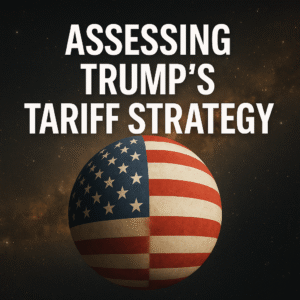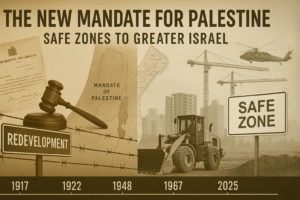Geopolitical Briefing: Jordan
11 May 2025
- Jordan’s government formally outlawed the Muslim Brotherhood, escalating its crackdown on Islamist opposition.
- Public unrest intensifies over Jordan’s continued ties with Israel amid Israeli military actions in Syria and Gaza.
- U.S. aid reductions deepen Jordan’s economic vulnerability, prompting Amman to seek alternative support.
- U.S. military presence in Jordan remains contentious as regional instability grows.(americanisraelite.com, Foreign Policy)
On April 23, 2025, Jordan officially banned the Muslim Brotherhood, labeling it an illegal organization and initiating actions to shut down its affiliated offices and seize assets. The Brotherhood, historically Jordan’s most organized opposition force with deep grassroots support, has been a vocal critic of the monarchy’s alignment with Israel and the West. The crackdown follows allegations of subversive activities and plots against national security. This move reflects the regime’s attempt to suppress ‘Islamist’ political influence and maintain its pro-Western stance, potentially exacerbating domestic tensions.(AP News)
Public dissatisfaction with Jordan’s relationship with Israel has surged, particularly in response to Israeli military actions in Gaza and Syria. King Abdullah II faces backlash against his country’s peace deal with Israel, as citizens demand a reevaluation of diplomatic ties. The government’s efforts to balance international alliances with domestic sentiment are increasingly strained, highlighting the challenges of maintaining stability amid regional conflicts.(Foreign Policy)
The reduction of U.S. aid under President Trump’s administration has intensified Jordan’s economic challenges. The cuts have forced Jordan to stretch resources even thinner, leaving the country in an unenviable position. In response, Jordan has sought alternative support, including a partnership agreement with the European Union worth 3 billion euros over the next two years. These developments underscore Jordan’s reliance on external assistance and the potential for increased vulnerability amid shifting geopolitical dynamics.(Hilltop Newspaper, Reuters)
The presence of U.S. military forces in Jordan remains a contentious issue. While the 2021 Defense Cooperation Agreement formalized the legal terms governing the presence of U.S. forces, public sentiment is increasingly critical of foreign military involvement. The strategic importance of Jordan’s location has made it a focal point for U.S. military operations, but the growing regional instability and domestic opposition may challenge the sustainability of this arrangement.(DAWN)
In summary, Jordan faces mounting internal and external pressures as it navigates complex geopolitical landscapes. The government’s actions against ‘Islamist’ opposition, coupled with public discontent over foreign alliances and economic dependencies, highlight the delicate balance required to maintain national stability. The evolving regional dynamics and shifting international support structures will continue to test Jordan’s resilience in the coming weeks.


